Vitamin K is a fat-soluble vitamin essential for making proteins and for blood clotting. It is also needed to make healthy bone tissue. Because it is broken down quickly, it is rapidly excreted in the urine and stools. Vitamin K deficiency is rare but can happen. If you don’t get enough Vitamin K it can take a longer time for your blood to clot and this can lead to bleeding, hemorrhaging, and osteoporosis. People taking antibiotics are most at risk of this type of deficiency. The good news is that green leafy vegetables are a great source of Vitamin K. Even better news is that you can grow them yourself! Here we list 11 high vitamin K vegetables to grow in your garden.
The recommended daily value (DV) for vitamin K is 120 mcg – this should prevent insufficiency in most people. Why not grow these vegetables yourself and get plenty of vitamin K without breaking the bank?
Kale
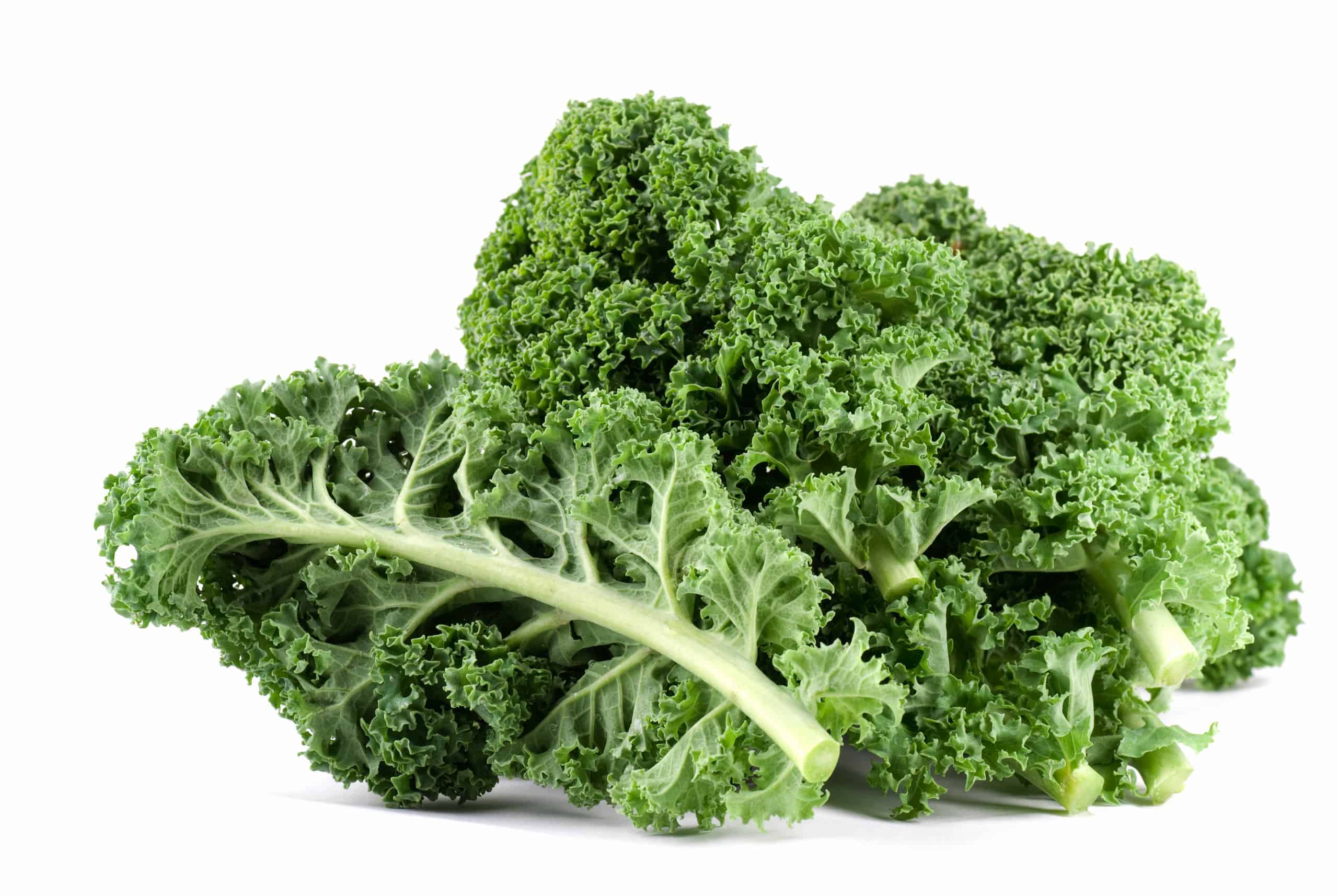
Kale is hardy and easy to grow.
©iStock.com/Ockra
This popular member of the brassica family is both delicious and easy to grow. It is the most super of all the super foods- just half a cup provides 443 percent of the recommended daily value! It’s a hardy plant that stands up to harsh weather and it can be harvested even during the lean months.
Mustard Greens
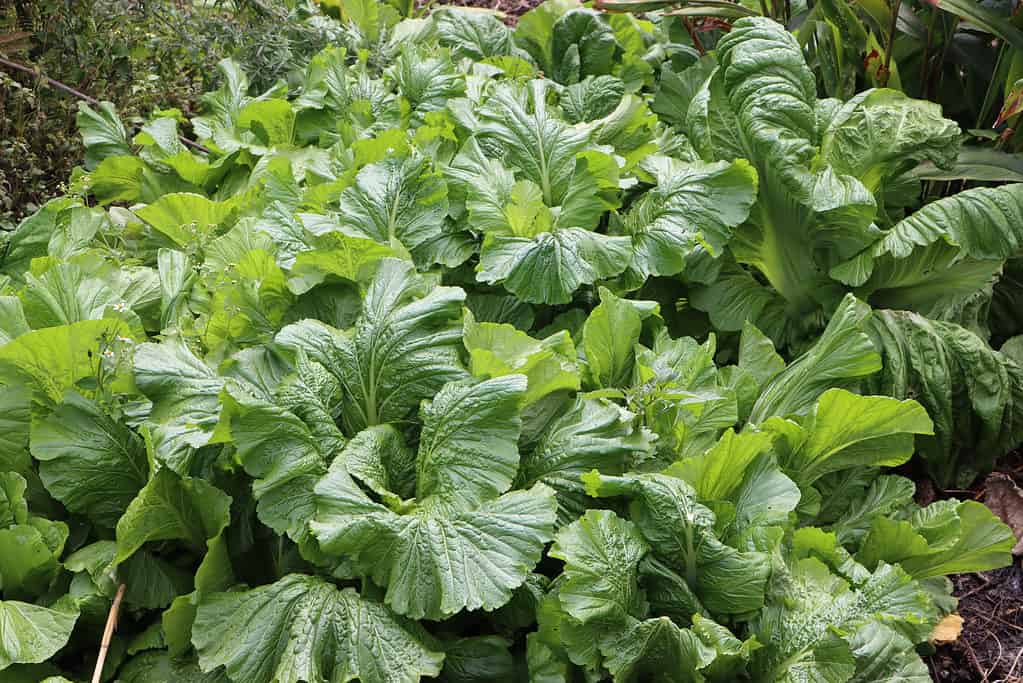
Cooked or raw, mustard greens are nutritious.
©Pravruti/Shutterstock.com
Mustard greens will grow well in your garden in a sunny location and fertile, well-drained soil. You will need to plant them half an inch deep and two or three weeks before the last frost. Cooked mustard greens have higher levels of vitamin K but they can also be eaten raw.
Swiss Chard
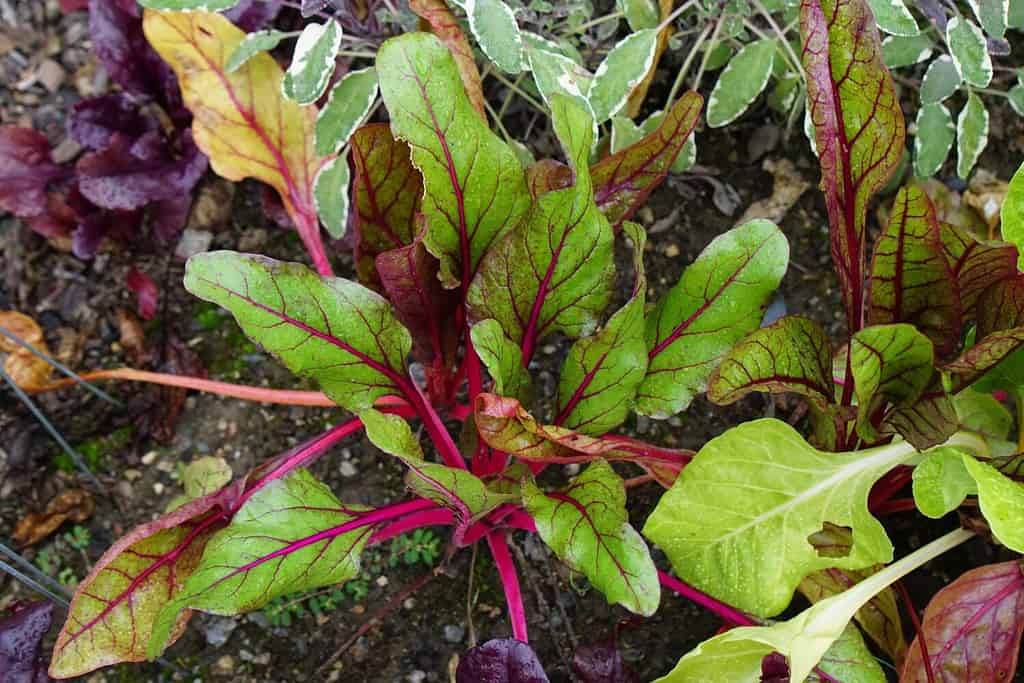
Use swiss chard as a tasty alternative to spinach.
©quiggyt4/Shutterstock.com
A delicious alternative to spinach, Swiss chard is easy to grow in your garden even if you are a novice. The leaves can be used in stir-fries and soups and the very young, tender leaves can be added to salads where they look and taste great. One leaf provides 332 percent of your recommended daily value.
Collard Greens
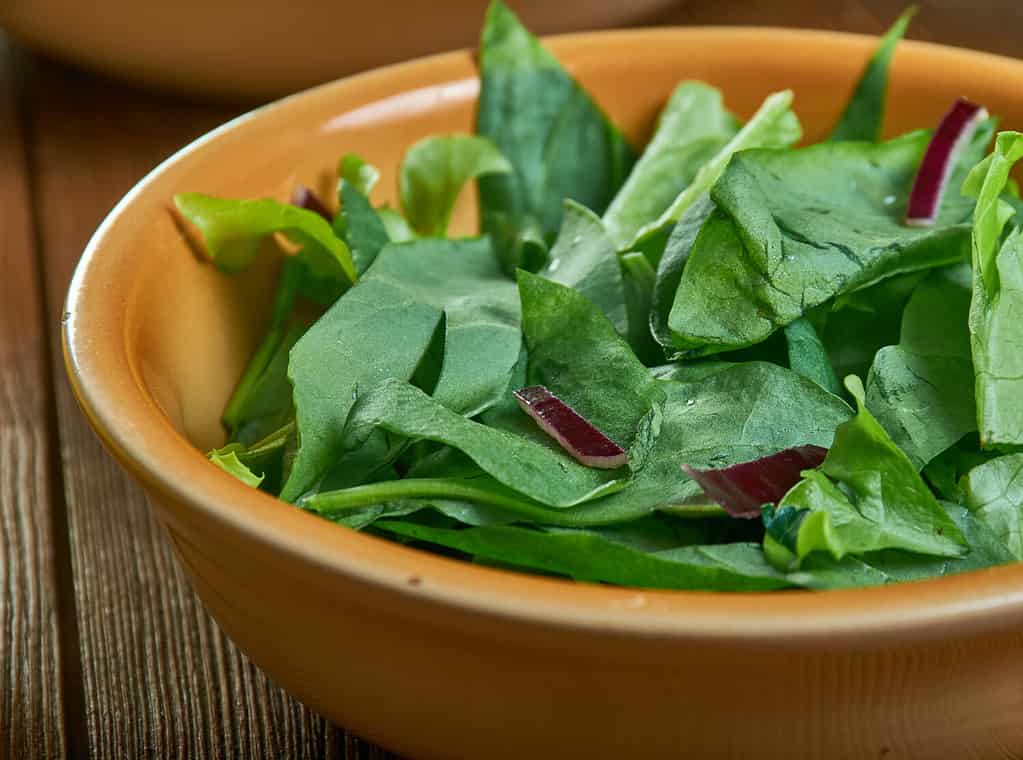
You can add collard greens to smoothies.
©Fanfo/Shutterstock.com
These plants will grow well in raised beds, containers, and in the ground so you have plenty of options. They are a great alternative to kale or simply serve them chopped with a variety of nuts. You can also add them to smoothies and half a cup will provide you with 322 percent of the recommended daily value.
Spinach
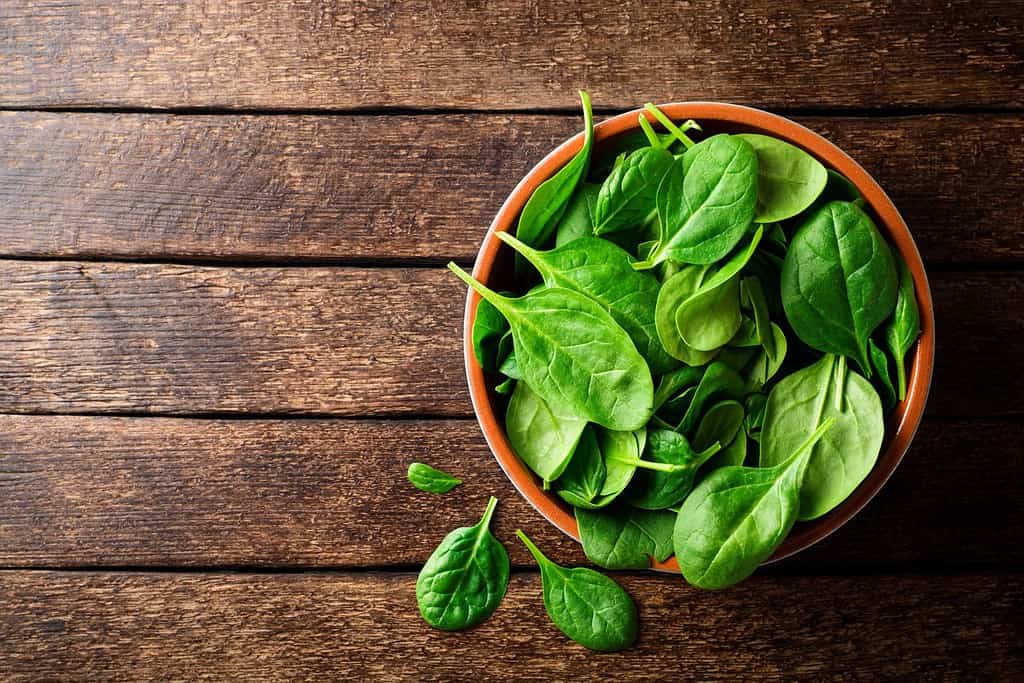
Eat spinach raw or cooked to get plenty of vitamin K.
©nesavinov/Shutterstock.com
Spinach is a compact plant that fits well into small spaces and containers if you do not have a large garden. It also grows quickly and can be eaten raw or cooked in salads, stews, and sandwiches to name just a few. Eat just one cup and you will have 121 percent of the your recommended daily value.
Broccoli
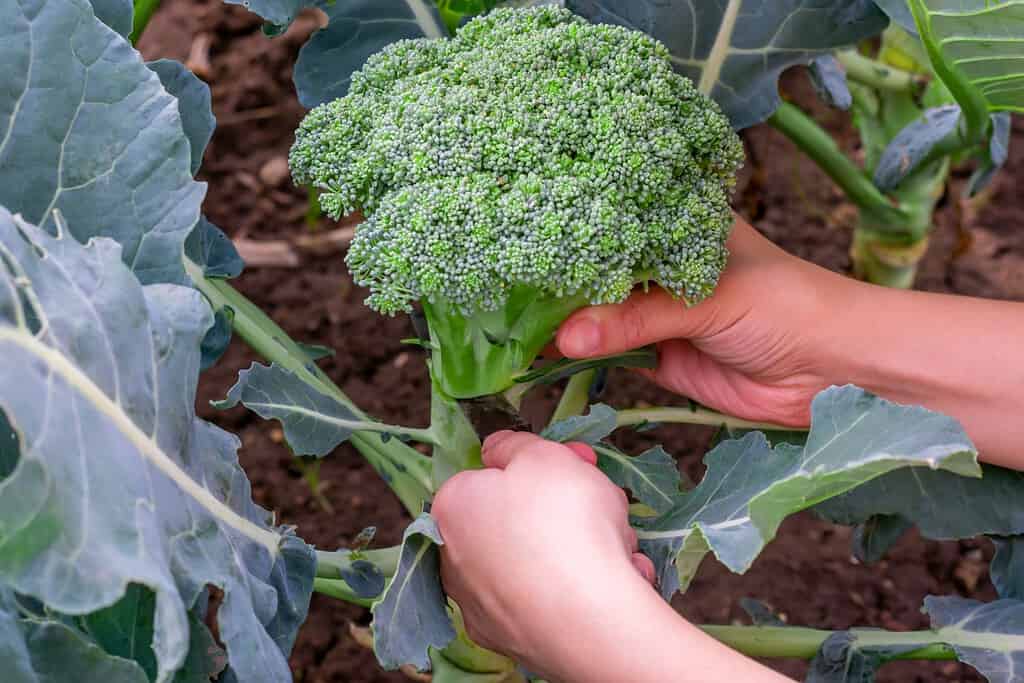
Grow broccoli in your garden for a vitamin K-rich snack.
©Sunny_Smile/Shutterstock.com
This brassica is easy to grow in your garden and produces repeated harvests. Growing it is a lot cheaper than buying it. Just half a cup of broccoli provides you with 92 percent of your recommended daily value. It can be eaten raw or cooked.
Brussels Sprouts
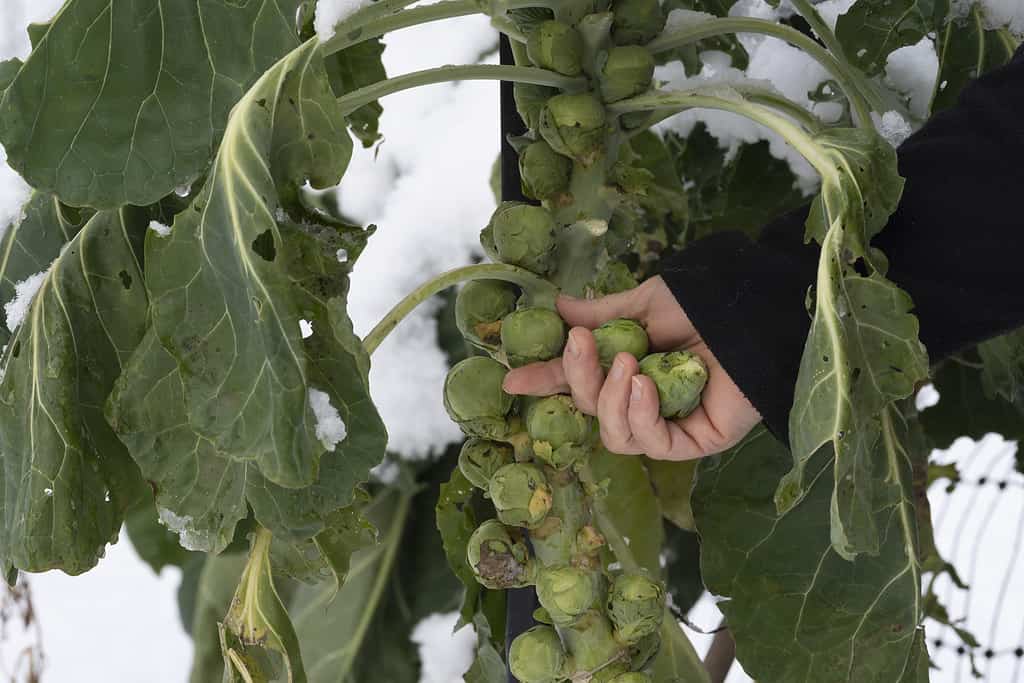
Half a cup of brussels sprouts provides almost all of your recommended daily value of vitamin K.
©gabort71/ via Getty Images
Brussels sprouts are a winter vegetable that you can grow in your garden. You can harvest them even when the weather is freezing. However, be warned that they are a tall plant that can reach three feet. Just half a cup will provide you with 91 percent of the recommended daily value.
Green Beans
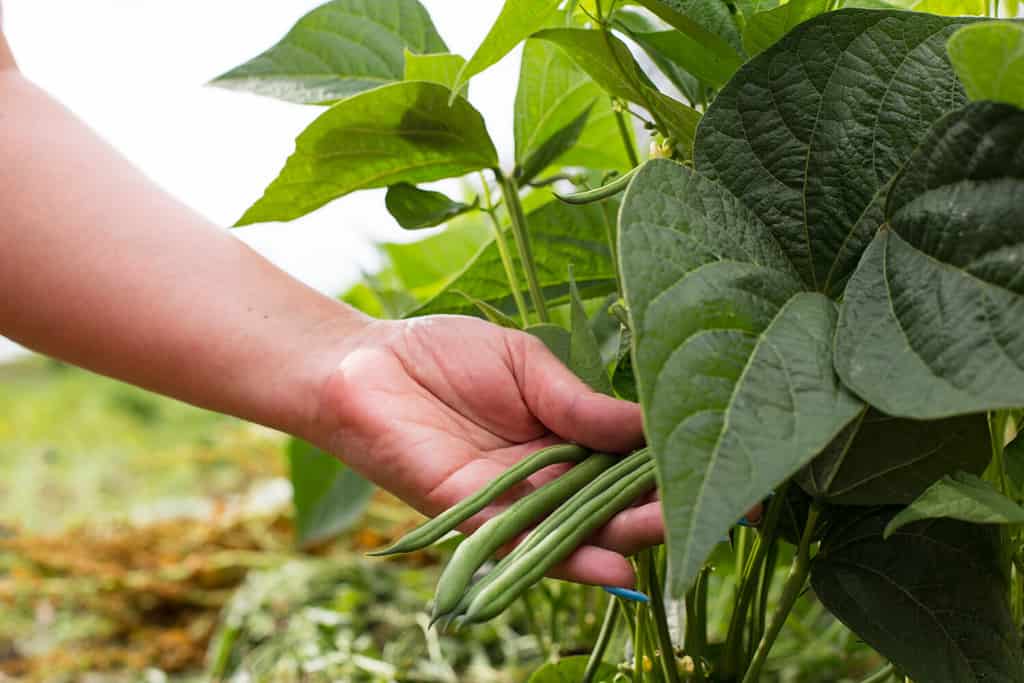
Choose a sunny spot to grow green beans.
©Sergiy Akhundov/Shutterstock.com
An ideal vegetable for beginners to grow, half a cup of green beans will provide 25 percent of the recommended daily value. They are easy to grow, take up very little space and look great. You can even grow them in containers. Make sure that they get plenty of sun and are well watered.
Green Peas
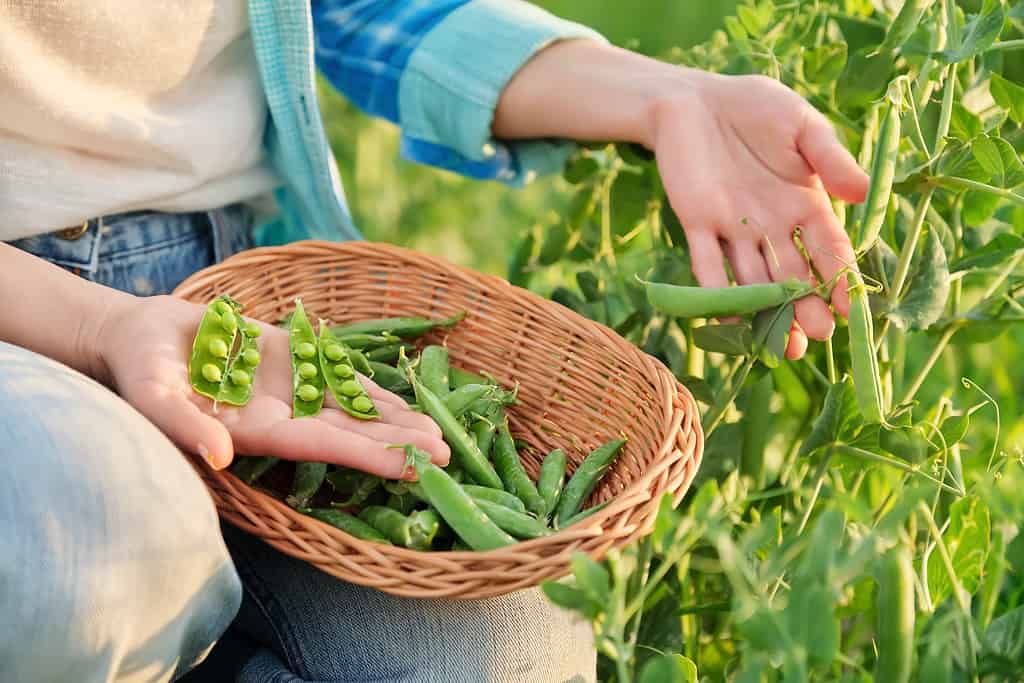
Enjoy snacking on pea in your garden.
©VH-studio/Shutterstock.com
Peas are succulent and delicious and when you grow them in your garden they taste even better! Just half a cup of them supplies 17 percent of the recommended daily value for vitamin K. They can be served with so many foods but you will probably eat them before they make it into your kitchen!
Beet greens
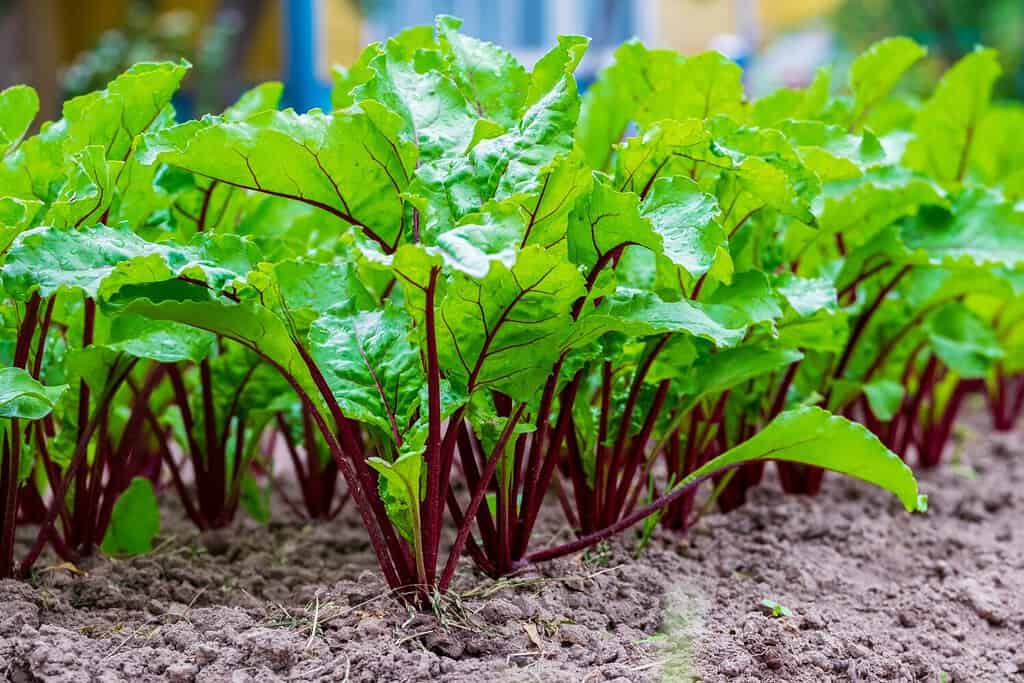
Loaded with vitamin K, beet greens are easy to grow.
©Denis Shitikoff/Shutterstock.com
You don’t need green fingers to grow beet greens. All you need is a bunch of beets from the grocery store with the leaves still attached. Trim the greens, cut the top off the beets and place them cut-side down in a dish of water. Leave in a sunny spot in your house or garden and within a week you will have tasty beet greens.
Cabbage

Savoy cabbage is just one variety of this brassica.
©fotomem/ via Getty Images
Half a cup of cooked cabbage delivers 68 percent of your recommended daily value for vitamin K. They are a hardy, tasty and versatile member of the brassica family. There are spring, summer, fall and winter cabbages so you have plenty of choice.
The photo featured at the top of this post is © Amverlly/Shutterstock.com
Thank you for reading! Have some feedback for us? Contact the AZ Animals editorial team.







